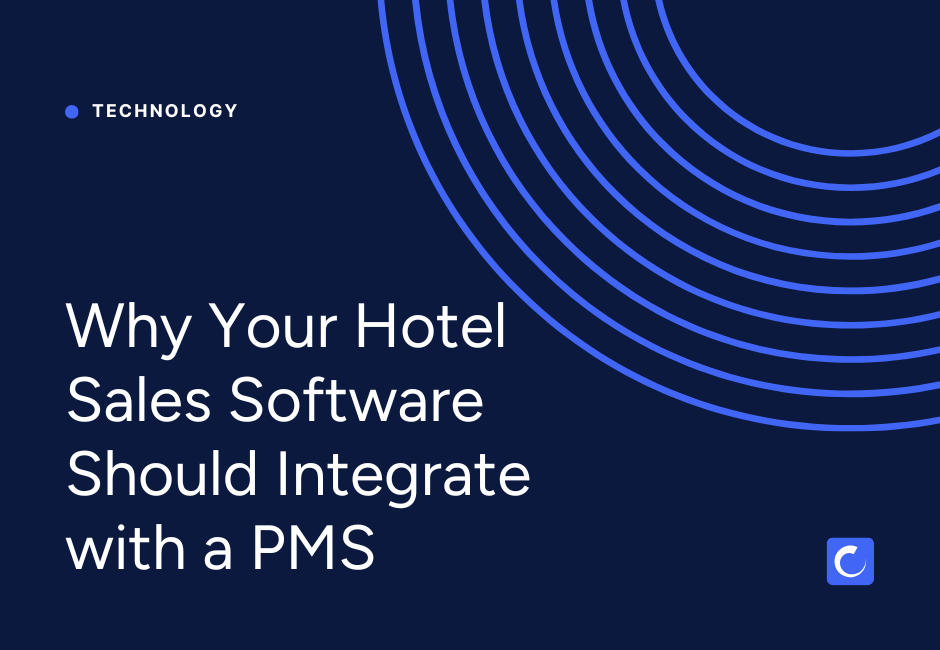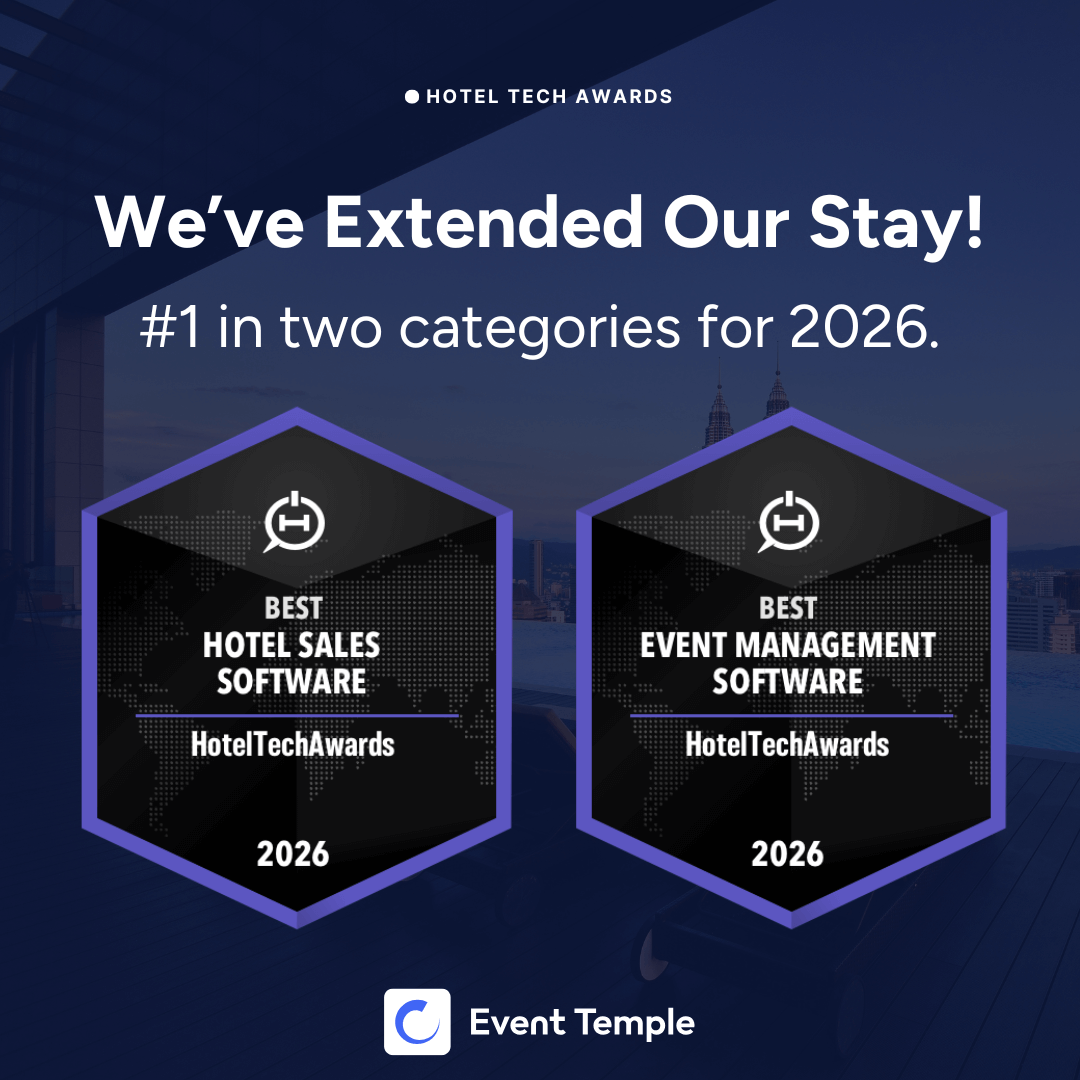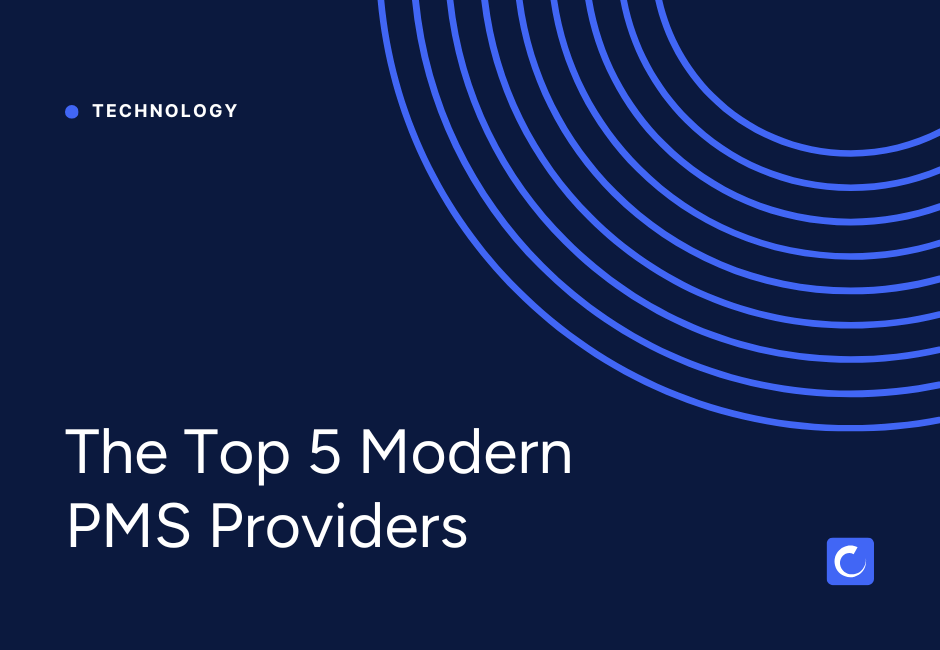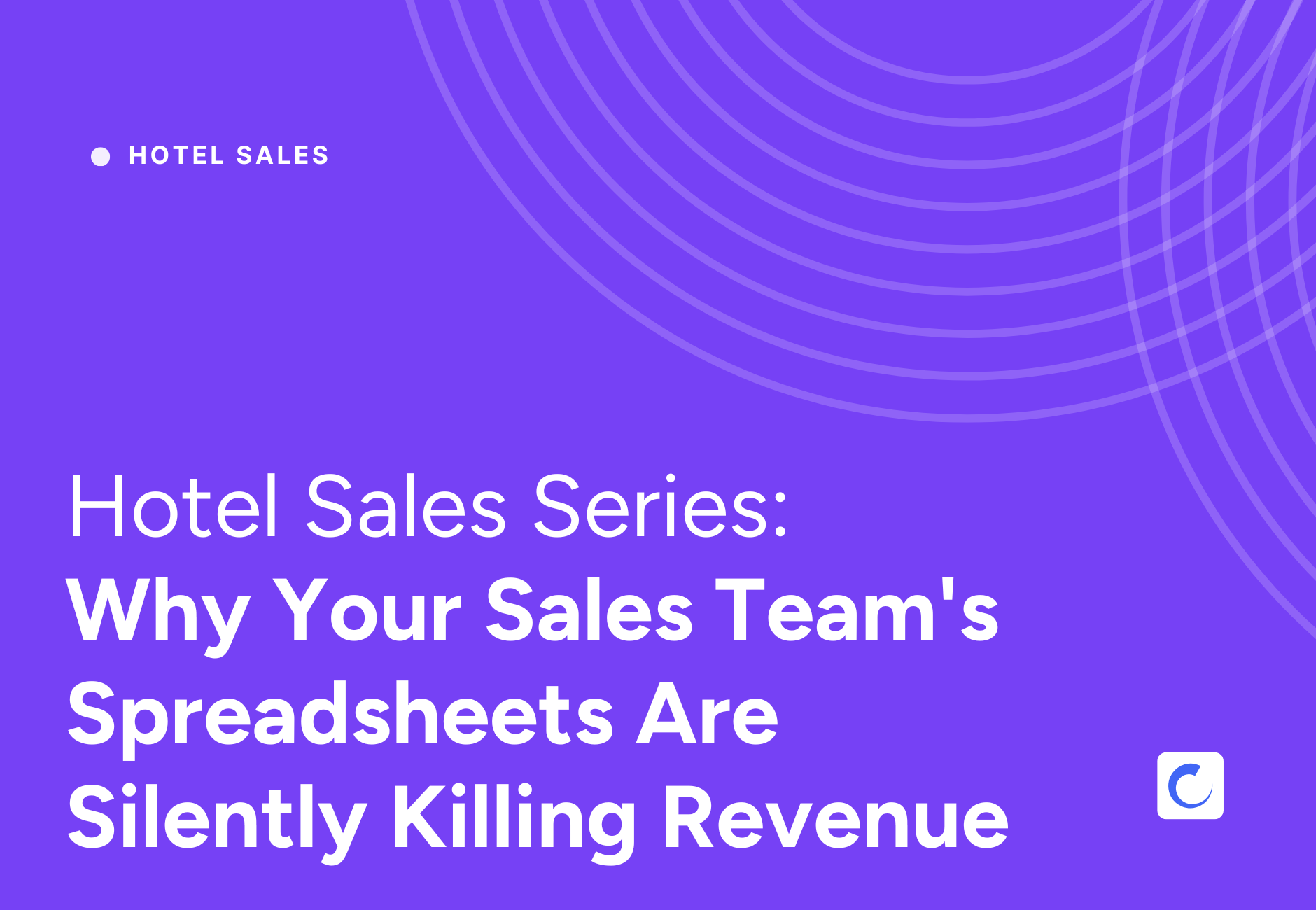
Today's hoteliers are increasingly recognizing that disconnected systems are holding back their revenue potential. As properties strive to maximize REVPAR and ADR while delivering exceptional guest experiences, the integration between sales software and Property Management Systems (PMS) has evolved from a nice-to-have to a critical business necessity.
The Hidden Cost of Disconnected Systems
Hotels operating with separate, non-integrated sales and PMS platforms face significant operational challenges that directly impact profitability. When your sales team books a corporate event or group reservation in one system, and your front desk operates from another, you're not just risking double bookings, you're creating friction that affects every touchpoint of the guest journey. Manual data transfers between systems increase the likelihood of errors, from incorrect room blocks to mispriced packages, ultimately eroding both revenue and guest satisfaction.
The hospitality industry has long struggled with the inefficiencies of managing multiple, disconnected systems. Properties frequently report spending excessive hours on duplicate data entry and manual reconciliation between their sales and property management platforms. These administrative burdens don't just waste time, they increase the risk of costly errors that can damage guest relationships and hurt your bottom line.
Understanding Modern PMS Integration Capabilities
Today's leading PMS providers have recognized this challenge and built their platforms with open APIs designed for seamless integration. As detailed in our analysis of the top 5 modern PMS providers for hotels in 2025, platforms like Mews, Apaleo, and StayNTouch have prioritized connectivity as a core feature rather than an afterthought.
The shift toward API-first architecture represents a fundamental change in how hotel technology ecosystems function. Unlike legacy systems that required expensive, custom-built integrations, modern PMS platforms can connect with sales and catering software in real-time, ensuring data flows seamlessly between departments. This approach has become increasingly important as hotels seek to create more efficient operations and better guest experiences.
Five Critical Benefits of PMS-Integrated Sales Software
1. Real-Time Inventory Management
When your sales software integrates directly with your PMS, room inventory updates happen instantaneously. This means your sales team can confidently quote availability for group bookings without constant back-and-forth with reservations. Properties with integrated systems consistently report faster response times to RFPs and significantly reduced incidents of overbooking or inventory conflicts.
2. Unified Guest Profiles
Integration creates a single source of truth for guest data. When a corporate client books their annual conference through your sales team, their preferences, special requests, and historical spending patterns are immediately accessible to front desk staff, housekeeping, and F&B teams. This 360-degree view enables personalized service that drives loyalty and repeat business—a critical differentiator in today's experience-driven market.
3. Automated Revenue Recognition
Financial accuracy improves dramatically when sales contracts automatically flow into your PMS. Hotels with integrated systems report more accurate revenue forecasting and significantly reduced month-end reconciliation time. The elimination of manual data entry between systems reduces errors and ensures that your financial reporting reflects real-time business performance.
4. Enhanced Reporting and Analytics
Integrated systems provide holistic insights that drive better decision-making. Instead of manually combining reports from multiple systems, managers can instantly access comprehensive dashboards showing how group business impacts overall occupancy, ADR, and ancillary revenue. This visibility is crucial for optimizing pricing strategies and identifying upselling opportunities.
5. Streamlined Operations
Staff efficiency improves dramatically when information flows seamlessly between systems. Your events team can focus on delivering exceptional experiences rather than chasing down room lists, while your revenue manager can make dynamic pricing decisions based on real-time group pickup data. This operational efficiency translates directly to improved guest satisfaction and increased profitability.
What to Look for in Sales and PMS Integration
Not all integrations are created equal. When evaluating how your sales software connects with your PMS, consider these essential capabilities:
Two-Way Data Synchronization: Look for integrations that push and pull data in both directions. Group bookings created in your sales system should automatically create blocks in your PMS, while room pickup should flow back to update your event contracts.
Comprehensive Data Transfer: Beyond basic room blocks, robust integrations should handle guest information, billing details, package components, and special requests. Properties with comprehensive integrations typically experience fewer guest complaints related to booking errors and miscommunications between departments.
Real-Time Updates: Batch processing is outdated. Modern integrations should reflect changes instantly, ensuring all departments work with current information. This real-time synchronization is particularly crucial during busy periods when room inventory changes rapidly.
Error Handling and Validation: Quality integrations include built-in checks to prevent common issues like overlapping room blocks or rate discrepancies. These safeguards protect your revenue and maintain data integrity across systems.
Making the Integration Decision
For hotel managers and senior leadership evaluating new systems, the integration capability between sales software and your PMS should be a primary selection criterion. Hotels investing in integrated technology stacks consistently report strong returns on investment through improved operational efficiency and increased revenue capture.
Consider conducting a thorough assessment of your current technology landscape. Are your teams spending excessive time on manual data entry? Are you losing business due to slow response times on group RFPs? Are billing errors creating guest friction? These pain points signal the need for better integration.
When evaluating potential solutions, look for vendors with proven track records of successful integrations. Request detailed demonstrations of how data flows between systems, and ask for references from properties similar to yours. The right integration partner will not only provide the technology but also support your team through the implementation process.
The Path Forward
The modern hospitality landscape demands agility, efficiency, and exceptional service delivery. Hotels that continue operating with disconnected systems risk falling behind competitors who have embraced integration. As you evaluate PMS options like CloudBeds, Opera Cloud, or StayNTouch, prioritize those offering robust, open APIs and proven integration partnerships.
Event Temple's PMS integration capabilities exemplify the level of connectivity modern hotels need. By providing deep, bi-directional integrations with leading PMS platforms including Mews and Apaleo, properties can eliminate data silos and create the seamless operational environment necessary for success in today's market.
Properties that implement integrated sales and PMS systems consistently report improvements in group booking efficiency and overall guest satisfaction scores. These metrics directly translate to improved revenue performance and market competitiveness. The integration between your sales platform and PMS isn't just a technical consideration—it's a strategic decision that impacts every aspect of your hotel's operations.
Tying it All Together
Ready to transform your hotel's operational efficiency? Start by scheduling demos with modern PMS providers that prioritize integration. Ask specific questions about API capabilities, integration depth, and existing partnerships with sales and catering platforms. Request case studies from properties similar to yours that have successfully implemented integrated systems.
When evaluating potential integrations, pay special attention to:
- The depth and breadth of data synchronization
- The reliability and speed of real-time updates
- The vendor's track record of successful implementations
- The level of ongoing support and system maintenance provided
- The scalability of the solution as your property grows
The investment in integrated technology isn't just about efficiency—it's about positioning your property for sustainable growth in an increasingly competitive market. Hotels that make this transition now will be best positioned to capitalize on the continued recovery and growth of group and events business in 2025 and beyond.
For a comprehensive evaluation of modern PMS options that excel at integration, explore our detailed guide on the top 5 modern PMS providers. Understanding your integration options is the first step toward creating a connected, efficient, and profitable hotel operation. Learn more about how Event Temple's integration capabilities can transform your hotel's sales operations at eventtemple.com.



